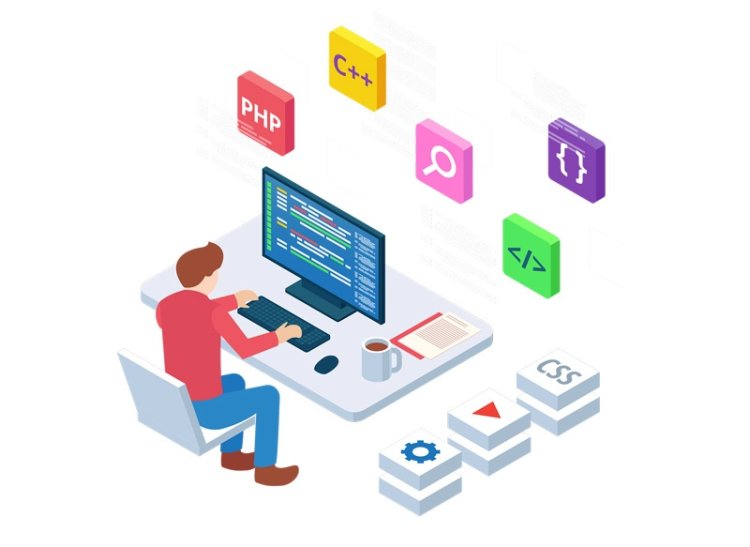WordPress vs. Laravel: Which is the Right Choice for Your Website Project?
WordPress vs. Laravel: Which is the Right Choice for Your Website Project?

WordPress vs. Laravel: Which is the Right Choice for Your Website Project?
When embarking on a new website or web application project, one of the most fundamental decisions revolves around the underlying technology. In the vast PHP ecosystem, two names frequently come up: WordPress and Laravel. While both are incredibly popular and powerful, they represent very different approaches to web development. Choosing the wrong one can lead to frustration, limitations, and increased costs down the line.
So, should you build your next project with WordPress or Laravel? The answer, as is often the case in technology, is: "It depends." Let's break down what each platform is, their strengths and weaknesses, and which scenarios they are best suited for.
What is WordPress?
WordPress is a full-fledged Content Management System (CMS). It started as a blogging platform but has evolved into a versatile system capable of running everything from simple brochure sites to complex membership portals and e-commerce stores (primarily through plugins like WooCommerce).
- Key Characteristics:
- User-Friendly Interface: Famous for its relatively intuitive admin dashboard, allowing non-technical users to manage content (pages, posts, media) easily.
- Vast Ecosystem: Benefits from an enormous library of themes (for design) and plugins (for functionality). Need a contact form, SEO tools, or an event calendar? There's probably a plugin for that.
- Rapid Development (for standard sites): Setting up a basic website with standard features can be incredibly fast using pre-built themes and plugins.
- Large Community: Extensive documentation, forums, and tutorials are readily available.
What is Laravel?
Laravel is an open-source PHP Framework. It doesn't provide an out-of-the-box website like WordPress does. Instead, it offers developers a structure, set of tools, components, and conventions to build custom web applications from scratch. It follows the Model-View-Controller (MVC) architectural pattern, promoting organized and maintainable code.
- Key Characteristics:
- Flexibility and Customization: Provides complete control over the application's logic, database structure, and user interface. Ideal for bespoke requirements.
- Developer-Focused: Offers features that streamline common development tasks like routing, database migrations, authentication, caching, and more.
- Modern Practices: Encourages object-oriented programming and follows modern PHP standards.
- Scalability & Performance: Generally considered highly scalable, and its lean core can offer better performance for complex applications compared to a potentially plugin-heavy WordPress site.
- Built-in Security Features: Provides tools to help developers mitigate common web vulnerabilities like cross-site scripting (XSS) and SQL injection.
Head-to-Head Comparison:
| Feature | WordPress | Laravel |
|---|---|---|
| Type | Content Management System (CMS) | PHP Web Application Framework |
| Ease of Use (End User) | Very High (for content management) | N/A (requires a custom-built interface) |
| Setup Speed (Basic Site) | Very Fast | Slower (requires development) |
| Customization | High (via themes/plugins), complex custom logic can be cumbersome | Extremely High (built from scratch) |
| Flexibility | Moderate (constrained by WP core/plugin architecture) | Very High |
| Learning Curve (Dev) | Lower initially, steeper for deep customization | Steeper initially, very powerful once mastered |
| Performance | Variable (depends heavily on themes, plugins, hosting) | Generally Good (optimized core, control over code) |
| Scalability | Can scale, but complex sites may need significant optimization | Designed with scalability in mind |
| Security | High target due to popularity; relies on updates & reputable plugins | Strong built-in features; relies on developer practices |
| Development Cost/Time | Lower for standard sites | Higher initially, potentially better ROI for complex apps |
| Maintenance | Frequent updates (core, themes, plugins) needed | Framework/dependency updates, typically less frequent |
| Ecosystem | Massive (Themes/Plugins - variable quality) | Large (Packages - generally developer-focused) |
When to Choose WordPress:
WordPress is often the best choice when:
- Your primary need is content management (blogs, news sites, portfolios).
- You need a standard brochure website for a business.
- You require common functionalities easily available through reliable plugins (e.g., basic e-commerce via WooCommerce, forms, SEO).
- Your budget and timeline are limited, and standard features suffice.
- Non-technical users need to frequently update website content.
- You are building a Minimum Viable Product (MVP) with standard features.
When to Choose Laravel:
Laravel is generally the superior option when:
- You are building a complex web application with custom business logic.
- You need highly specific workflows or unique features not covered by WP plugins.
- Scalability and long-term performance for a complex application are critical.
- You require tight integration with other systems or APIs.
- You need granular control over security and data structure.
- The project involves building APIs (Application Programming Interfaces).
- You have experienced PHP developers available who are comfortable with frameworks.
Can They Coexist?
Yes! A common modern approach is using Laravel for the backend (managing data, logic, APIs) and a separate frontend technology. Sometimes, WordPress is even used in a "headless" manner for its content management capabilities, with Laravel (or another framework) consuming that content via an API to display it within a custom application.
Conclusion:
The "WordPress vs. Laravel" decision isn't about which technology is inherently "better," but which is the right tool for the specific job. WordPress excels at getting content-focused sites up and running quickly with a user-friendly management experience. Laravel provides the power and flexibility needed to build robust, scalable, and highly customized web applications from the ground up.
Before starting your next project, carefully analyze your requirements: What core functionality is needed? How much customization is required? Who will maintain the site? What are the long-term scalability and performance goals? Answering these questions will guide you to the foundation – WordPress or Laravel – that best sets your project up for success.
What's Your Reaction?













